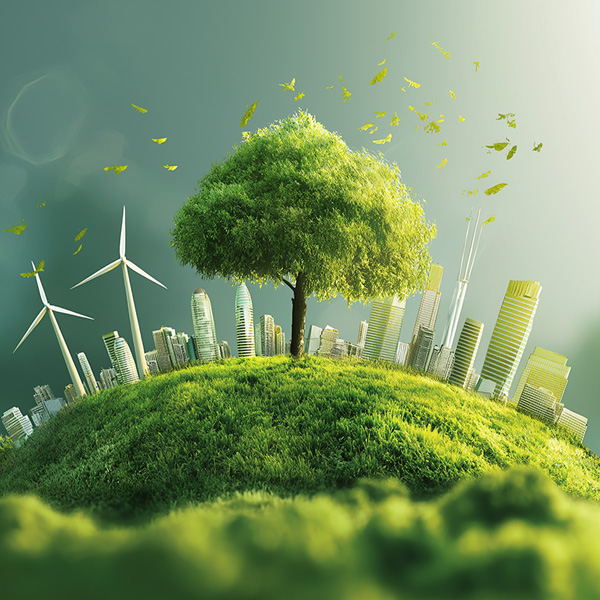Sustainability Commitment
Our Commitment to Sustainability in Dispute Resolution
At arbitrateAD, we are committed to aligning our dispute resolution services with the environmental, social, and governance (ESG) objectives of the parties we serve. In doing so, we play a pivotal role in supporting their sustainability aspirations. We want to help normalise environmentally conscious procedures across the field of international dispute resolution, and by taking this approach from the outset, we are reflecting the values of the institution we are building.
We are dedicated to reducing our environmental footprint and promoting diversity and inclusion, while actively engaging with our stakeholders on sustainability issues and supporting the transition to clean energy.

1. Minimising Our Environmental Impact
Since inception, we have implemented a fully digital case management system to eliminate the need for paper-based filings. We actively encourage remote participation in hearings to minimise travel-related emissions, and we remain committed to low-carbon practices wherever possible.
Our organisation proudly supports global initiatives aimed at reducing the environmental impact of dispute resolution, such as the Campaign for Greener Arbitration .
As part of our commitment to the Green Pledge, we treat arbitrators’ climate offsetting costs for air travel as part of arbitration expenses, which shall be compensated in accordance with the Arbitration Rules.
2. Promoting Diversity and Inclusion
We believe that a diverse and inclusive environment is essential for driving innovation and excellence in dispute resolution. At arbitrateAD, we are dedicated to creating a workplace that reflects the diversity of our industry. We actively seek to involve individuals of diverse genders, ages, and cultural backgrounds in our operations, decision-making, and the events we participate in or organise.
In line with our commitment, we have joined multiple pledges and initiatives that promote equal representation in arbitration and other areas of dispute resolution. Our goal is to ensure that our panels and teams are composed of professionals who bring a wide range of perspectives and expertise to the table, strengthening the quality and fairness of our services. We are proud supporters of the Equal Representation in Arbitration Pledge (ERA Pledge) and Racial Equality for Arbitration Lawyers (REAL) .
3. Engaging with Stakeholders on Sustainability
At arbitrateAD, we recognise the importance of being a thought leader in sustainability within the dispute resolution community. We actively organise and participate in events that focus on the intersection of dispute resolution and sustainability, contributing to the wider conversation on these critical issues.
We are dedicated to turning ideas into action, ensuring our work contributes to a more sustainable future for all.
4. Facilitator of the Clean Energy Transition
As a centre operating in a region and era shaped by the global shift to clean energy, we believe that our own operations must reflect the sustainability principles driving that change. It’s about making sure that dispute resolution evolves with the needs and values of the sectors it serves.
We understand that resolving these disputes swiftly is crucial for supporting the global transition to a greener economy. Our specialised processes, including expedited procedures and emergency arbitrator provisions, are designed to meet the unique challenges posed by complex business arrangements and are particularly well-suited to address climate-related issues.
We are committed to appointing arbitrators with expertise in environmental law and sustainability to ensure that these disputes are resolved with the highest level of competence and understanding.
We are exploring case management tools and flexible rules to keep projects moving and ensure arbitration supports the momentum of the transition, rather than holding it back.
Finally, we are building with inclusion and transparency in mind — serving not only large investors, but also smaller entities and public bodies that are increasingly part of the clean energy landscape.
In short, while we may be new, we’re already building from a position of strength. We see the clean energy transition not just as a source of disputes — but as an opportunity for international dispute resolution to evolve. To be faster. Fairer. And part of a more sustainable future.
